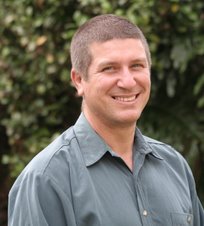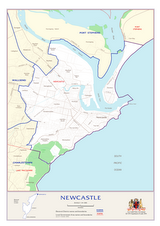Gnomes at bottom of garden
Gnomes at the bottom of the garden
Some in the State Government, like Minister Costa, don't think they should be doing anything about climate change...
well...
Climate change is happening and all spheres of government need to show leadership.
Scientists are now in agreement that climate change is happening, that it is happening faster than predicted and that it will affect us all. [Third Assessment Report 2001 Intergovernmental Panel on Climate Change (IPCC)]
There is no scientific disagreement that human-induced climate change is the greatest threat to life on earth, and that the major contributor is carbon dioxide. Climate change is caused by increased amounts of greenhouse gases in the atmosphere from human activities, particularly burning fossil fuels such as coal, oil and gas. These increased amounts of greenhouse gases including carbon dioxide are sent into the atmosphere, trapping heat from the sun and wrapping a hot blanket around the earth in the same way that a greenhouse captures the sun’s warmth.
Carbon dioxide levels have increased from 280 parts per million (ppm) in 1750 to over 375 ppm today – higher than any previous levels that can be reliably measured (that is, in the last 420,000 years). [Third Assessment Report 2001 Intergovernmental Panel on Climate Change (IPCC)]
Even the most cautious assessment by the Australian Government points to CO² emissions as the major cause of climate change: “The current rate of increase in CO² in the atmosphere is unlikely to have been experienced during at least the 20,000 years and is the most likely explanation along with other greenhouse gases for climate change” . [Climate Change Q&A Greenhouse Office Dept of Environment and Heritage 2006]
Increasing greenhouse gases are causing temperatures to rise; the Earth’s surface warmed by approximately 0.6 centigrade degrees over the twentieth century. [Joint Science Academies Statement on Climate Change G 8 plus Brazil, China and India June 2005]
These increased temperatures are beginning to melt the world’s stored ice, warming the oceans, causing sea levels to rise, drowning islands and flooding coastal areas.
Burning coal is the big climate change contributor.
Australians have the dubious honour of being ranked first in producing the most greenhouse emissions per capita in the world at 27.9 tonnes annually, more than double the average of 12.8 tonnes per person for all industrialised countries. [Australians Worst Greenhouse Polluters Clive Hamilton, The Australia Institute August 2002]
Nationally we send more than 530 million tonnes of greenhouse gases into the atmosphere each year, of which 71% is the by-product of stationary energy produced by coal-fired power stations.
In NSW, 90% of the state’s electricity comes from coal-fired power stations [NSW Dept of Energy, Utilities and Sustainability Sept 2006], with six of the eight coal fired power stations located in the Hunter region of NSW. There is a limited amount of ‘green power’ produced in the form of wind, biomass and hydro electricity.
It is recognised that the CSIRO Energy Centre in Newcastle provides a focal point in Australia for energy research in the fields of sustainable energy, environmental impacts of energy and cost-competitive and environmentally-acceptable fuel research and development.
Newcastle is the world’s largest coal export port.
The world’s atmosphere does not recognise whether the coal is burnt in the Hunter or anywhere else in the world.
Seventy seven (77) million tonnes of coal is sent overseas from Newcastle every year.
For every tonne of coal burnt, 3.7 tonnes of carbon dioxide is sent into the atmosphere. [Factors and Methods Workbook, Australian Greenhouse Office Dec 2005 p32]
Expanding the Hunter coal industry will directly increase Australia’s current contribution to global warming and climate change. The current proposal before the NSW State Government for a third Coal Export Terminal on Newcastle Harbour will send up to another 66 million tonnes of coal overseas every year sourced from proposed new coal mines in the Hunter Valley and the Gunnedah basin.
Climate change will affect everyone, including Newcastle residents.
Apart from the reported impacts of climate change on the Hunter wine industry and horse stud industry, climate change will affect Novocastrians by :
* increasing the variability and potency of storms, floods, droughts and other weather disasters
* affecting water resources, stream flows and groundwater recharge, which will in turn affect our food supply, health and industry
* rising sea levels could inundate areas of the Newcastle LGA, including residential areas
* impacting on our threatened species and ecosystems, including our Internationally-recognised wetlands and salt marshes
* posing incalculable economic risks for the future, which far outweigh the economic risks of taking action today – Munich Re, the largest re-insurance company in the world, has estimated that climate change will cost the global economy $300 billion per annum by 2050 if action is not taken [Quoted by Ian Lowe, address to the National Press Club 2005].
* threatening the health of future generations through increased disease, freshwater shortages and worsened air pollution
The Australian medical profession is concerned about the effects of climate change on human health. The Australian Medical Association’s (AMA) position in favour of renewable energy is clearly stated on its website: “The AMA believes that human health is ultimately dependent on the health of the planet and its ecosystem. The AMA believes it is possible to mitigate the possible consequential health effects of climate change through improved energy efficiency, clean energy production and other emission reduction steps.” [Australian Medical Association ]
Newcastle City Council has made great progress towards becoming a sustainable city through the use of bio-diesel in council vehicles, energy and water efficiency measures and its push to become one of Australia’s Solar Cities. The effect of these initiatives will be undone if the Hunter-based coal industry is expanded.
Action to transition away from coal burning is needed
Scientists tell us we have only 10 years to make the shift away from climate-changing fossil fuels to sustainable, renewable energy if we wish to prevent climate disaster. [“I think we have a very brief window of opportunity to deal with climate change … no longer than a decade, at the most” James E Hansen Director of NASA’s Goddard Institute of Space Studies quoted in various US media including WorldNet Daily September 15 2006.]
All our efforts need to be directed to achieving this major shift in our energy sources.
Many energy savings could be made with emphasis on investment and subsidies for efficient and renewable energy backed by government policy at all levels.
There will be no loss of jobs in the coal industry from preventing its expansion. There is, however, the potential to create thousands more jobs from investment in the renewables industry .
We cannot afford to wait for solutions that do not recognise the continuing impact of sending carbon into the atmosphere every day, drawing the planet rapidly to the ‘tipping point’.
The Precautionary Principle, enshrined in the Local Government Act, states that where there are threats of serious or irreversible environmental damage, lack of full scientific certainty should not be used as a reason for postponing measures to prevent environmental degradation.
Climate change is happening and it is critical that the Government commit to a “just transition” away from coal dependency for Hunter communities, to support job creation and the retraining and the seeding of new sustainable industries paid for by a levy on existing coal mines.






